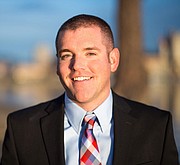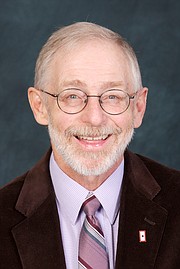Pick your party
COEUR d’ALENE — A push is on to drive political party identification into city council elections in Idaho.
Municipal elections in the state are currently nonpartisan, which means that city office election ballots, unlike ballots for federal, state and county offices, do not designate the candidates’ political affiliations.
A resolution passed last June at the Idaho Republican State Convention calls for Idaho legislators to amend state code to allow for a partisan system of primaries at the municipal level.
The resolution cites a lack of Republican interest in nonpartisan city elections and a need for candidate transparency through disclosure of political affiliation. It also accuses Democrats of using the nonpartisan system to hide behind, to get liberals elected.
“Far-left candidates running in conservative legislative districts demonstrate conclusively that the Democrat party is exploiting the nonpartisan loophole, taking advantage of low-turnout elections, and deceiving voters …” the resolution states.
With the Legislature in session, Ryan Davidson, chairman of the Ada County Republican Central Committee and champion of the GOP effort, is shopping for a legislator to introduce a bill, according to the Idaho Statesman.
The issue was on the agenda last week in Boise when the Association of Idaho Cities hosted its City Officials Day at the Capital. Dan Gookin, a Coeur d’Alene City Council member, was there.
“There was not one mayor or council person who supports it,” Gookin said.
Gookin, who made an unsuccessful bid for Kootenai County Clerk last fall as an unaffiliated candidate, said the Republican Party platform doesn’t address local, city politics.
“I don’t want national politics injected into the city council,” he said.
A council member since 2011, Gookin said there is only one time the Coeur d’Alene council has considered an issue that is generally partisan.
“That was the anti-discrimination ordinance,” Gookin said.
The municipal law, adopted in 2013 in Coeur d’Alene, protects members of the LGBT community from discrimination when seeking housing, employment and other public accommodations.
Gookin said there is also the issue of the cost and scheduling of city election primaries.
Rep. Paul Amador, R-Coeur d’Alene, said he hasn’t seen a draft of the legislation, making it difficult to comment specifically about the merits and negatives of the idea.
“On first blush, I’m not sure converting city councilors to partisan positions will create a net positive for an individual community,” Amador said.
“Generally speaking, I think party identification helps voters quickly identify a core set of political attitudes.”
Amador said it also helps large political bodies like state legislatures and Congress organize political agendas and priorities to help guide a smooth legislative process.
“City councils on the other hand are generally very small organizations of individuals that often consider agenda items that are not clearly partisan,” Amador said. “I’m not sure I see the benefit of inserting a partisan wedge into such a small organization, like a city council, that must work very closely together for the benefit of the community.”
Amador said his general sense is that legislation to amend Idaho code to create partisan city council elections does not have a high likelihood of success during this year’s legislative session.
Dan English, a Coeur d’Alene City Council member who served as Kootenai County Clerk while a Democrat, said the motive for moving to nonpartisan city elections would not be for better service for citizens or better government, but purely political.
“I think it’s a terrible idea and would be a real injustice to the citizens,” English said. “People want to have an easy way to decide who to vote for. That often has nothing to do with experience, education or history in the community.”





